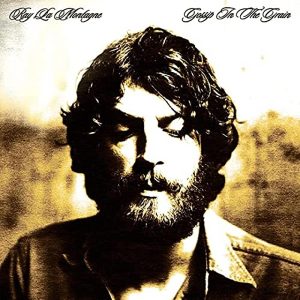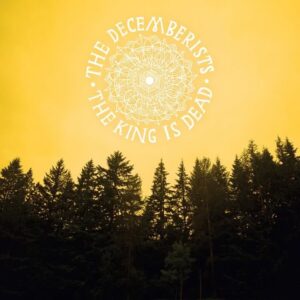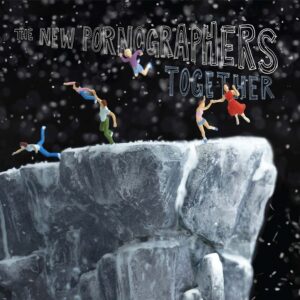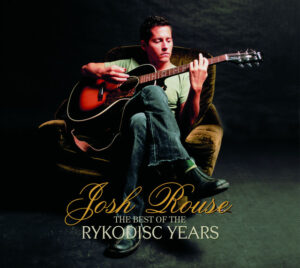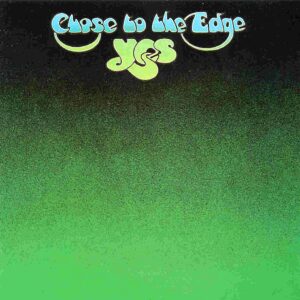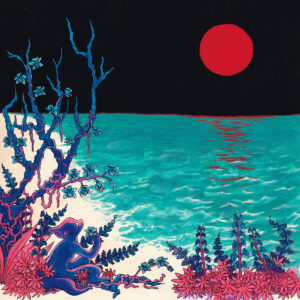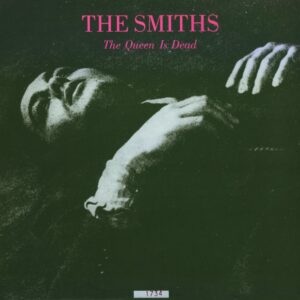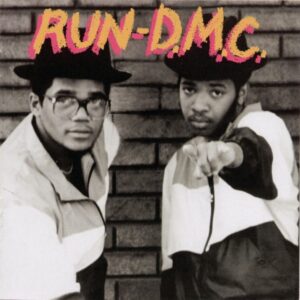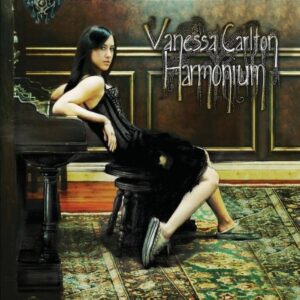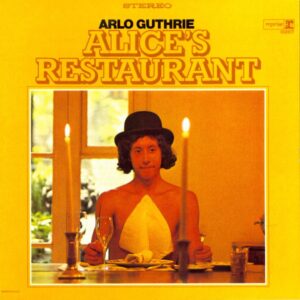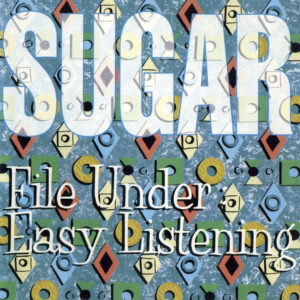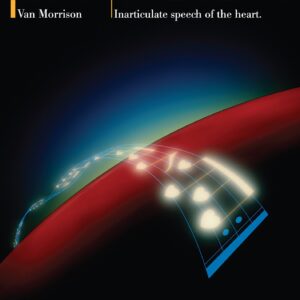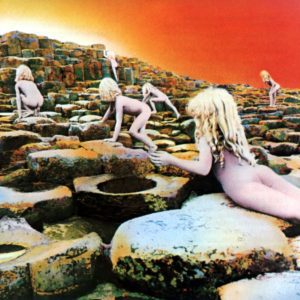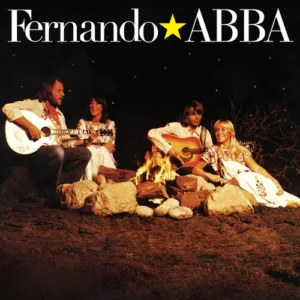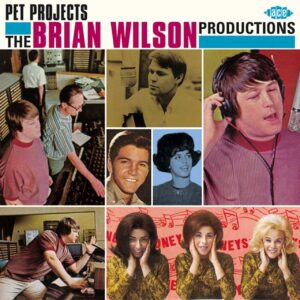
Nebraskan-born singer-songwriter Josh Rouse grew up inspired by British bands like The Smiths and The Cure. His music reflects the homespun feeling of the American Midwest and the introverted yet poppy sound of the bands that influenced him. He also has a predilection for 1970’s soft rock, most explicitly on 2003’s excellent genre-exercise album 1972.
His observational songwriting and gentle voice are sometimes reminiscent of Paul Simon‘s 1970’s work. His penchant for 10-track, 40-minute albums also makes him feel like a throwback.
There is a lot to like about Rouse’s work, but I’m not sure that he’ll be remembered as a major artist. Rouse’s thoughtful songs are in the wrong era to find a mass audience, while his fondness for pop hooks and straightforward sensibilities don’t win him friends at Pitchfork. So Rouse is stuck in musical limbo, too clever for the mainstream but too white bread for hipsters, and he’s limited to fans of heartfelt, accomplished songwriting.
Josh Rouse started his career with the worthy but dour 1998 album Dressed Up Like Nebraska. Over the next few years, he became more confident and musically expansive, building up to 1972 and 2005’s Nashville, which stand as his two best records.
2006’s Subtítulo marks the start of the second phase in his career. Rouse relocated to Spain, and his subsequent releases often feel more light-hearted and less substantial, as well as often featuring a more Spanish flavour.
Josh Rouse Album Reviews
Favourite Album: Nashville
Overlooked Gem: Under Cold Blue Stars
Dressed Up Like Nebraska
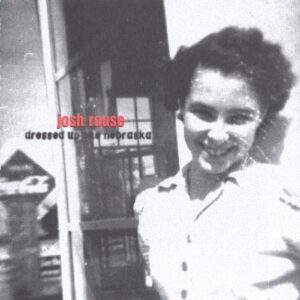
1998, 7/10
Josh Rouse’s 1998 debut album features a low-key indie-folk sound; Rouse began the album on an 8-track recorder, although David Henry, who previously toured with Cowboy Junkies, co-produced and contributed bass and cello parts. With a very homogeneous sound, the songs tend to blend into each other; the hooks are there but are more subtle than on his later albums.
The most memorable songs are the faster ‘Late Night Conversation’, the insistently strumming ‘Flair’, and the cello hook of ‘Lavina’, although ‘The White Trash Period Of My Life’ has the most memorable song title. Dressed Up Like Nebraska is solidly written, but it’s difficult to enthuse or write much about, although I’m sure there are fans out there who value the low-key and downbeat sound over anything else Rouse has done.
I’ve always been a little bemused by AllMusic’s summation of Dressed Up Like Nebraska: “This is one of those classic discs one hears about, but seldom hears.”
Chester (EP)
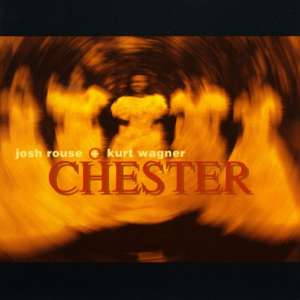
1999, 7/10
The Chester EP pairs Rouse with Lambchop leader Kurt Wagner. Wagner contributes the lyrics, while Rouse writes the music and provides the vocals. It’s certainly interesting to hear Rouse with darker and more nuanced lyrics than his usual, and musically Chester is a little more expansive than Dressed Up Like Nebraska, even though songs like ‘Table Dance’ and ‘Somehow You Could Always Tell’ would have easily fit onto that disc. ‘That’s What I Know’ utilises a horn section, ’65’ touches a white soul sound, while ‘I Couldn’t Wait’ is subdued, with a languid harmonica the most prominent accompaniment. As with Dressed Up Like Nebraska, Chester is accomplished and substantial, but I still prefer Rouse’s more eclectic later albums.
Home
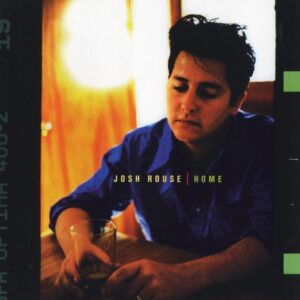
2000, 7.5/10
Home is a step forward in confidence for Rouse; after the often dark and stifling Dressed Up Like Nebraska, the best songs here are much more memorable. While it’s largely monotone compared to his more diverse later albums, there’s some light and shade here. Songs like ‘Marvin Gaye’ breeze by in a way that nothing on the debut did, but there are still subtle and reflective pieces like ‘100m Backstroke’.
All the first-rate material is stacked at the start of Home, and after the opening four tracks, the album settles back down into less memorable and more ruminative material. The opening highlights include the white soul of ‘Marvin Gaye’, with its “You are a star” refrain”, and the single ‘Directions’. The best song is the pretty ‘Parts and Accessories’, the harmonies underpinned by the gentle Fender Rhodes riff.
Josh Rouse is still learning his trade on Home, but it’s a significant step forward, as his albums continue to get better and better.
Under Cold Blue Stars
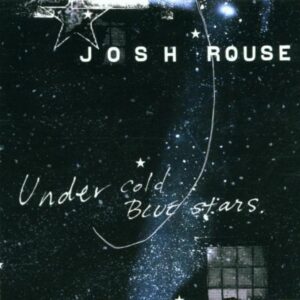
2002, 8/10
A concept album outlining the romance and dissipation of a small-town couple in 1950’s America, Under Cold Blue Stars is surprisingly effective at maintaining the story arc without ever being too explicit, travelling from first love (“Nothing gives me pleasure like you do/Nothing has the strength to pull me through”) to infidelity and parting (“Next time you’re in town/Don’t bother coming around you’re not welcome anymore”). One of Rouse’s collaborators is future Wilco member Pat Sansone, who adds various instrumental parts, while the use of analogue synthesizers also adds interesting textures.
Rouse’s falsetto adds life to the soulful, insistent ‘Nothing Gives Me A Pleasure’, and the gentle groove of the title track. The highlight though, is the moody ‘Christmas With Jesus’, mournfully paced and awash in gritty guitars, it boils down the tension in the marriage between the Christian and non-Christian protagonists into four poignant lines (“And I ask of the Lord to spare me His sword of forgiveness/’Cause it’s so very hard to ask for a part in your Christmas with Jesus”).
‘Ugly Stories’ is a story of infidelity which is notable for its depressed, resigned feel that’s devoid of anger. The second half of the album is less immediate, as it’s slower and more pensive, but there’s still the defiant pessimism of ‘Feeling No Pain’ and the relaxed ‘Summer Kitchen Ballad’ to provide focal points.
Squeezing some great songs into a coherent, interesting conceptual structure that’s never overbearing, Under Cold Blue Stars is a subtly rewarding effort.
1972
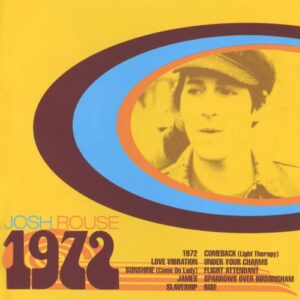
2003, 8.5/10
Rouse uses the sonic textures of the year of his birth as the basis for 1972. Specifically, he doesn’t draw so much on the fringe genres such as Black Sabbath’s heavy metal or Yes’ symphonic progressive rock, but on the mainstream soft rock that dominated AM radio, such as Carole King, The Carpenters, and Bread, as well as touches of soul like Curtis Mayfield. There are touches such as prominent flute leads and cheesy guitar breaks. But despite the seventies façade, there’s some flat out brilliant material here, and the likes of ‘Come Back (Light Therapy’ and ‘James’ are wonderful songs no matter which way they’re dressed up.
It takes a few listens to realise that ‘Come Back (Light Therapy)’ isn’t a simple boy/girl song, but instead a love song addressed to the sun (“I miss my serotonin” is the opening line to the fabulous bridge), and it’s stuffed with hooks, with a super infectious bass line, punchy horns, and melodic flute fills in the bridge. ‘James’ utilises Rouse’s effective falsetto, while ‘Love Vibration’ is an infectious, unbridled slice of joy.
The record becomes more serious towards the end. ‘Under Your Charms’ is a gorgeous reconciliation of sexual attraction with love, while ‘Sparrows Over Birmingham’ and the beautiful ‘Rise’ almost take on spiritual tones. With the deliberately cheesy arrangements, 1972 can become irritating when the material is a little substandard, and the more straightforward pop of ‘Sunshine (Come On Lady)’ and ‘Slaveship’ are the two least effective songs on the disc.
Nevertheless, 1972 is a successfully light-hearted, pop-oriented disc, from an artist who’d largely dealt in serious, introverted material up to this point.
Nashville
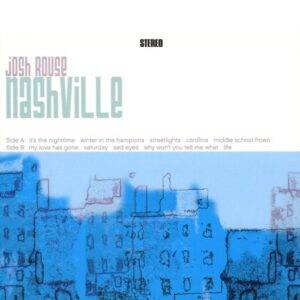
2005, 9/10
Nashville largely mines the same soft-rock territory as 1972, and the country elements that the title implies come from Al Perkins’ pedal steel. These songs are much more serious and autobiographical than the festive atmosphere of 1972, reflecting on the dissolution of Rouse’s marriage and his relocation away from Nashville. Songs like ‘My Love Has Gone’ and ’Why Won’t You Tell Me What’ are straightforward and unambiguous, and obviously come straight out of Rouse’s own experience.
‘Sad Eyes’ dives straight into orchestrated piano ballad territory, and it’s the best song on the disc, especially the climax where the bouncy bridge is overlaid with the chorus. The guitar on the driving ‘Winter In The Hamptons’ could have come straight from a Smiths album, while ‘Why Won’t You Tell Me What’ is a bluesy vamp. The second-tier material like ‘It’s The Nighttime’, ‘Carolina’, and ‘Saturday’ are all memorable and infused with Rouse’s pop sensibility, and this consistency is what makes Nashville Rouse’s best album.
Nashville is an easily digestible collection of light pop songs, but there’s more than enough emotional weight to give it substance.
Subtítulo
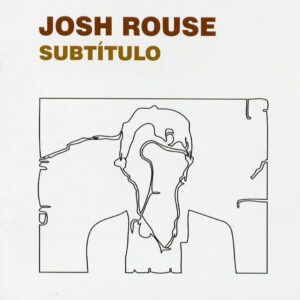
2006, 7.5/10
Subtítulo reflects Rouse’s shift to Spain; following his artist girlfriend Paz Suay to Valencia on the Mediterranean coast. Musically, Rouse describes it as a “nylon string guitar and voice album” while Suay contributes charming backing vocals on ‘The Man Who…’.
Clocking in at a mere ten tracks and thirty-three minutes, Subtítulo does feel slight. Even the thematically darker tracks like ‘Givin’ It Up’ and ‘El Otro Lado’ go down relatively easily musically. The happier tracks like the incandescent ‘It Looks Like Love’ and the Fender Rhodes groove of ‘His Majesty Rides’ are bathed in sunlight.
The only thing that separates ‘It Looks Like Love’ from being a slick soft rock hit from mid-1970s AM radio is the snidely provocative lyrics. Similarly, the opener ‘Quiet Town’, sounds like Rouse really is channelling David Gates, and the string-drenched ‘Wonderful’ also mines retro soft rock. ‘Givin’ It Up’ and ‘His Majesty Rides’ lay down sunny grooves, even when the subject is Rouse’s alcoholism in the former.
Subtítulo feels lightweight with its short length and sunny feel, but it’s another high-class collection of songs from Rouse.
She’s Spanish, I’m American (EP)
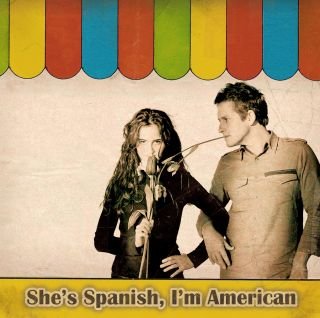
2007, 7/10
She’s Spanish, I’m American was released while my wife and were dating, and I always thought that if we’d released an EP together, we could have called it She’s Baptist, I’m Presbyterian. A 5 song EP in collaboration with girlfriend Paz Suay, it’s an interesting release in Rouse’s discography, as it goes further towards pure pop than anything else that Rouse has released; there’s more aural candy and less acoustic guitar than any other Rouse release. An artist by vocation, Suay provides vocals on most of the tracks, and her voice is probably too thin to carry an album by herself, it works nicely in conjunction with Rouse.
There are lots of pretty pop hooks like the opening ‘Car Crash’ and ‘Jon Jon’. ‘These Long Summer Days’ has beautifully harmonised choruses and a pretty clipped melody, and it’s the disc’s highlight. Don’t expect anything profound, but She’s Spanish, I’m American has plenty of enjoyable ear candy; in hindsight, it’s a shame that some of these songs weren’t held over to boost 2007’s disappointing Country Mouse, City House album.
Country Mouse, City House
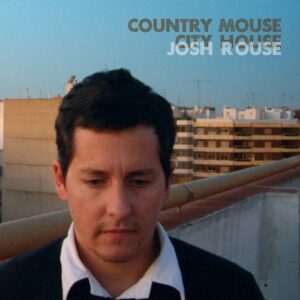
2007, 5.5/10
Josh Rouse wrote nine songs for Country Mouse, City House, and by my count only four of them are worthwhile. While there’s a trace of nylon string guitar of Subtítulo, it feels more like a grab bag of leftovers from earlier Rouse projects; two of the strongest tracks, ‘Italian Dry Ice’ and ‘Hollywood Bass Player’, have subtle grooves that could have come from 1972.
The opening ‘Sweetie’ is pretty and sentimental, and Rouse uses his yearning voice to good effect, while the gentle Fender Rhodes groove of the closer ‘Snowy’ is my favourite song on Country Mouse, City House. But the album’s middle stretch is a tough slog – lots of generic songs with pretty arrangements, like ‘Domesticated Lovers’ and ‘Nice To Fit In’.
Country Mouse, City House hits enough different styles that it’s entertaining, but it sags badly in the middle and it feels lightweight next to Josh Rouse’s best work.
El Turista

2010, 7/10
El Turista is another featherweight album from Rouse, fully of sunny sounds. But there’s much more innovation here than you might expect. Paz Suay gave Rouse an album by Cuban artist Bola de Nieve. Rouse went into the studio with Brad Jones to cover a song by de Nieve. The pair ended up with a sound that mixed 1960s Brazilian bossa nova with his usual soft rock. Rouse also sings in Spanish at times.
The best tracks are when Rouse leans into his newfound sound. ‘Valencia’ is a tribute to Rouse’s adopted home in Spain, but musically it’s much closer to Brazil. The jazzy piano sounds great on songs like ‘Duerme, Mobila’.
There’s a pretty cover of ‘Cotton Eyed Joe’, while originals like ‘Lemon Tree’ are also lovely. The closer ‘Don’t Act Tough’ feels like a weak point, overdressing a nondescript song.
While it doesn’t pack the emotional punch of Rouse’s best work, El Turista often goes in unexpected directions.
Josh Rouse and the Long Vacations
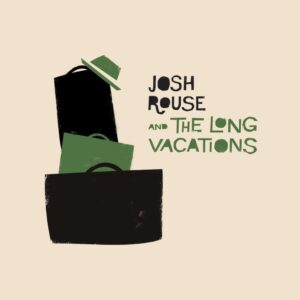
2011, 6/10
El Turista took a few risks underneath its sunny facade. But Josh Rouse and the Long Vacations is as light as a wisp of wind. It’s extremely short, with its nine songs running for just 26 minutes.
Rouse told Rocksucker that a short, breezy record wasn’t intentional:
It just turned out that way – this particular set of songs were pretty 1950s in length. It’s a short record but it seems that attention spans are quite a bit shorter these days so perhaps that’s a good thing.
Rouse is accompanied by The Long Vacations, multi-instrumentalists Cayo Bellveser and Xema Fuertes.
Even if it’s light and breezy, Rouse’s songwriting skills still shine through. The breezy ‘Movin’ On’ hits the same wavelength of 1970s AM radio gold as Rouse’s earlier tracks. ‘Oh, Look What The Sun Did!’ is pretty, with its lovely piano line.
Josh Rouse and the Long Vacations feels a little too inconsequential, but it’s often pretty anyway.
The Happiness Waltz

2013, 8/10
The Happiness Waltz feels more akin to Rouse’s peak early work. It’s more introspective and serious than he’s been for quite some time, and it feels more substantial as a result. It’s like a happier sequel to 2005’s Nashville, featuring the same country-tinged pop/rock sound.
Daniel Tashian is back as a co-writer, contributing to key tracks like ‘Julie (Come Out of the Rain)’ and ‘A Lot Like Magic’.
As always with Rouse, The Happiness Waltz is understated. But it’s his best set of tunes for a while. ‘Julie (Come Out of the Rain)’ is a pretty opening tune. ‘It’s Good To Have You’ is upbeat and catchy without departing from the record’s classy and restrained template. ‘The Ocean’ is my favourite deep cut, the low-key arrangement bringing out the tension in the melody. ‘A Lot Like Magic’ is a good microcosm of the record, with its pretty, low-key celebration of domesticity.
The Happiness Waltz is a return to the sound and quality of records like 1972 and Nashville.
The Embers of Time

2015, 7/10
As on The Happiness Waltz, Rouse returns to familiar singer-songwriter territory on The Embers of Time. It’s very familiar sounding, produced by Brad Jones and akin to an early 1970s Paul Simon record. But that’s not a bad thing. Rouse’s accomplished songwriting shines through in this comfortable context. One new addition to his sound is guest vocalist Jessie Baylin, who sounds great duetting with Rouse on ‘Pheasant Feather’
The Embers of Time was born from therapy sessions. Feeling isolated living in Valencia and feeling uneasy freelancing as a musician, Rouse chatted with a therapist. Many of the songs came from these sessions.
One of the standout tracks is ‘New Young’. It’s clearly influenced by Neil Young, complete with harmonica, and it’s a lovely tune. ‘Pheasant Feather’ starts slowly, but it gathers momentum as Baylin’s vocals and more instruments are added. ‘Time’ is also pretty, while closer ‘Crystal Falls’ is a shot of energy, telling the story of Rouse coming to California as a young teenager.
It’s easy to take Rouse for granted, as he keeps writing strong songs. The Embers of Time is another worthy effort.
Love In The Modern Age

2018, 7/10
After a couple of conventional Josh Rouse albums, Love in the Modern Age ventures into 1980s textures. Rouse lists his influences for the record as Prefab Sprout, The Blue Nile, Roxy Music, and 1980s Leonard Cohen. It’s smooth and synth-laden, with female vocalists and saxophone.
It works well on paper, as Rouse’s smooth voice rides creamily over the bed of synths. But it’s a little light on great songs. It would be interesting to hear Rouse explore the same territory with a stronger setlist.
It has its moments – the smooth portrait of a stressed-out yuppie in ‘Businessman’ is a fun juxtaposition, with a beautiful verse melody. ‘Tropic Moon’ is driven by an acoustic guitar strum. It wouldn’t be out of place on an early Josh Rouse album, and it’s gorgeous. ‘Salton Sea’ is a lovely opener, built around a pretty synth riff.
It’s a shame Rouse didn’t bring his strongest batch of songs to this project. Rouse mining the 1980s has potential.
The Holiday Sounds of Josh Rouse

2019, 6.5/10
Rouse’s album of Christmas-themed songs doesn’t sound as different from the rest of his catalogue as you might expect. It’s all original songs, and it’s produced by Rouse and regular collaborator Brad Jones. Rouse was inspired to make a Christmas album after touring with Nick Lowe. Lowe released Quality Street: A Seasonal Selection for All the Family back in 2013. It took Rouse almost a decade to write the material, but it was recorded in a quick three-day session.
As you’d expect from a Christmas album, it’s one of Rouse’s breezier records. It features a jazzy sound that in hindsight sounds like it’s always been part of his DNA. It feels like Vince Guaraldi’s Peanuts soundtracks are a touchstone. The standout track ‘Christmas Songs’ refers to Charlie Brown.
There’s also a memorable chorus on the frivolous ‘Sleigh Brother Bill’. ‘Letters in the Mailbox’ is gorgeously restrained.
Holiday Sounds is on the lighter end of Rouse’s discography, but it features enough of his accomplished songcraft to be pleasing.
Going Places

2022, 7.5/10
Going Places is the first straightforward Rouse album in a while. There’s no particular guise, and it instead returns to his singer-songwriter sound.
But its origins were a little different than usual. Rouse created Going Places in his home studio in Spain during the COVID-19 lockdowns. The songs were written to be simple and propulsive, suitable to be played at his friend’s nightclub with Rouse playing electric guitar. It’s his strongest record in nearly a decade, energetic and likeable.
The more energetic songs – the run of five songs in the first half, and the closer – are some of my favourite Rouse material for a long time. ‘Hollow Moon’ is his most immediate song in years, with an agreeable Americana sheen and saxophone riff. The electric guitar and simple arrangements add urgency to pretty Rouse tunes like ‘City Dog’ and ‘Stick Around’.
Going Places is a strong effort from Rouse, benefitting from some extra energy.
10 Best Josh Rouse Songs
Comeback (Light Therapy)
Sad Eyes
Christmas With Jesus
Marvin Gaye
My Love Has Gone
It Looks Like Love
Hollow Moon
The Ocean
Tropic Moon
Winter in the Hamptons
Return to 2000s Reviews
Related Pages
About
Aphoristic Album Reviews is almost entirely written by one person. It features album reviews and blog posts across a growing spectrum of popular music.
Review Pages
Read about the discographies of musical acts from the 1960s to the present day. Browse this site's review archives or enjoy these random selections:
Blog Posts
I add new blog posts to this website every week. Browse the archives or enjoy these random selections:

